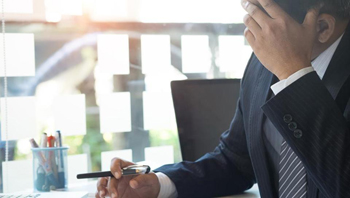Dec 24: Is stress at your workplace affecting your life? A new study finds that stressful jobs can make you find ways to solve problems and work through ways to get the work done, instead of making something debilitating, it can actually be something that is energising.
A new study finds that stress in your office - concentrates the mind, keeps you alert, improves your efficiency and even hikes up your productivity.
 According to The Mirror, the new research says, however, to enjoy these benefits of stress you have to feel in control of the task in hand and be involved in decisions such as timetables and deadlines.
According to The Mirror, the new research says, however, to enjoy these benefits of stress you have to feel in control of the task in hand and be involved in decisions such as timetables and deadlines.
Researchers from the University of Indiana's Business School have followed more than 10,000 workers in their sixties since 2004.
To measure the stress of their jobs, employees were asked how hard they worked; how much they needed to concentrate and if they were overworked.
The findings indicated, seven years later, those who worked in high-stress, low-control jobs were most likely to have died.
Cancer was found to be the leading cause of death among the study group, with stress known to be a risk factor.
Those with the most demanding jobs - and no control over them - are 15 percent more likely to die than those with less taxing careers. Also, people in high-stress, low-control jobs tend to be overweight.
Workers in more demanding jobs, who felt in control, were a third less likely to die than those in less stressful careers. They also find stress stimulating.
"These findings suggest that stressful jobs have clear negative consequences for employee health when paired with low freedom in decision making, while stressful jobs can actually be beneficial to employee health if also paired with freedom in decision making," said lead study author Erik Gonzalez-Mule.
"You can avoid the negative health consequences if you allow people to set their own goals, set their own schedules, and prioritise their decision making and the like," Professor Gonzalez-Mule added.
Stressful jobs cause you to find ways to problem solve and work through ways to get the work done.
Having a higher amount of control gives you the resources you need to do that.





Comments
Add new comment